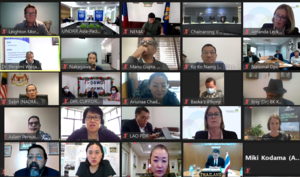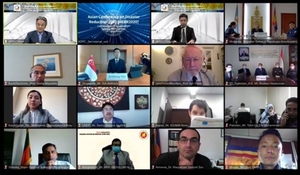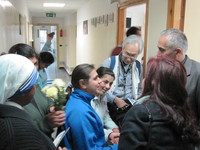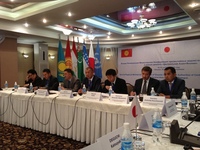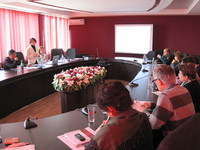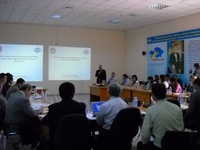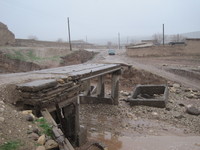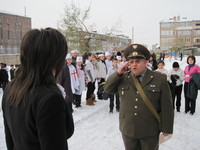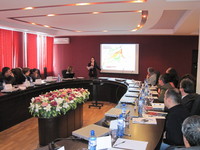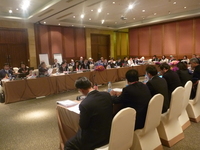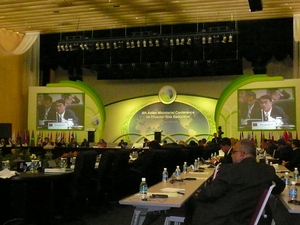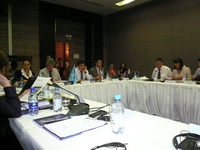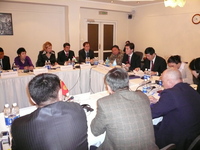ADRC participated in the United Nations Office for Disaster Risk Reduction (UNDRR) Asia-Pacific Partnership for Disaster Risk Reduction Forum, which was held online on 1-2 December 2020. The meeting was held online considering the spread of the new coronavirus, however, on both the first and second days, more than 150 representatives of government organizations and related organizations from Asian countries participated and actively exchanged opinions.
At the begining of the Forum on 1 December, Ms. Mami Mizutori, Special Representative of the United Nations Secretary-General for Disaster Risk Reduction, expressed her expectations for this forum. In addition, although each country got quite huge impact of COVID-19, just as the 2004 tsunami strengthened the DRR system in Asia, she called for to use this experience as an opportunity to further strengthen disaster resilience. Next, the representative of Australia, the host country of the Asia-Pacific Ministerial Conference on DRR (APMCDRR) scheduled to be held next year, explained that they are coordinating to hold the extended Conference sometime between April to June. Also she mentioned their efforts to enhance the DRR system in Australia in response to the large-scale bush fire last year. Then, it was followed by speech of the Minister of Ministry of Health and Medical Service of Fiji on their cyclone response activity under the COVID-19 pandemic.
Subsequently, UNDRR reported on the recent trend of disaster occurence in Asia and the results of monitoring of the implementation of the Sendai Framework for Disaster Risk Reduction (SFDRR). It was stated that in order to respond to unexpected disasters and simultaneous disasters, a mutual cooperation system among more parties concerned should be established. Further they informed the situation of collection and analysis of disaster damage data is still insufficient.
In the Panel Discussion, the director of the Australian Institute for Disaster Resilience acted as a moderator, and discussions were held on the theme of risk governance in national and local governments, which have become more aware of their importance following the recent COVID-19 pandemic. Representatives from the Government of India, the Philippine local government, the Vanuatu Disability Support Group, and a researcher in the medical field made presentations from their respective standpoints. Based on the experience of responding to COVID-19, they commonly touched upon the cooperation and partnership system of various stakeholders, the establishment of a permanent cooperation and collaboration system between the health sector and the DRR sector, and the advance planning for the preparation of simultaneous disasters as important points.
At the meeting on 2 December 2, Mr. Hiroko Oura of the International Monetary Fund (IMF) gave a keynote speech on financial risk management, which is one of the themes of APMCDRR. She presented the financial risk that COVID-19 poses to the world is unprecedented, and due to various uncertainties in understanding the risk of unprecedented disasters and predicting climate change, analyzing risks is difficult. She mentioned, on the other hand, it is necessary to carry out risk management based on such a premise. In addition, although the global restriction of social activities by COVID-19 contributed to the reduction of Greenhouse Gas Emissions, it was only temporary, rather it led to the decline in corporate environmental activities due to the deterioration of corporate financial conditions.
Next, the Australian Government explained the composition of APMDRR to be implemented next year and called for the active involvement of many stakeholders.
In the latter half of the meeting, representatives from 22 countries and organizations mentioned their efforts and future prospects, such as improvement of the system to promote the implementation of SFDRR, coordination and adjustments of the system to respond to simultaneous disasters based on the experience of COVID-19.
Finally, UNDRR explained the preparatory process for APMDRR, including of thematic discussions and regional discussion with relevant stakeholders. The Asian Disaster Reduction Center will also be actively involved in this process.


